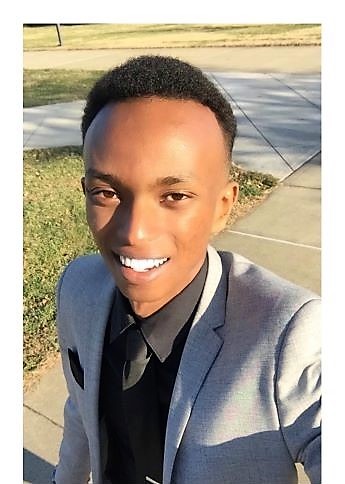
Monday, June 22, 2020
By Abdirahman Diria
Frederick Douglass once said: “Without a struggle, there can be no progress.”
In today’s fast-paced and ever-changing world, people of color are facing severe and challenging times. The global pandemic, exacerbated by racism and thoughtless acts of prejudice and ignorance, have forever changed the world. The inhumane, horrendous and dreadful murder of George Floyd showed the deep-rooted and still-present impacts of institutionalized racism.
George Floyd’s death exposed the racial injustices that deliberately target black Americans. Police brutality is a problem that continuously diminishes the future of many bright and promising African-Americans.
Recently, statistics revealed the coronavirus pandemic disproportionately affected the communities of color since the government neglected the in-born rights of its citizens, which are suffering tremendously. Lack of access to healthcare is a major issue many African-Americans deal with daily. Government underestimated its ability to fulfill its primary job, which is to serve its citizens with pride. The dignity and honor of African-Americans should be intact, and the federal government should respect and value the lives of black people.
Making practical and lasting changes starts with individuals. Although myriad ways can bring about a change, educating one’s self is the best way to eradicate and dismantle the institutionalized racism that affects millions of black Americans.
As Dr. Heidi M. Anderson, the president of UMES, noted in a recent message to the campus community: “Being black is not a crime in America. Not taking the opportunity to educate oneself is.”
Education empowers people to learn policies and competences required to end racism and the psychological and physical distress it can cause. The federal government should take responsibility, and diligently work with its people to ensure that communities of color access the opportunities and resources they need to succeed.
Creating change that will have impact comes when individuals take civic-minded actions. African-Americans must work with their elected local officials to enforce policies that promote equity and opportunity. Undeniably, America desperately needs forward-thinking and reliable leaders who will end the bigotry, callousness, and transgression that explicitly affects the communities of color.
The incredible progress that Harriet Tubman, Rosa Parks and Dr. Martin Luther King demonstrated could be made is a testament to the perseverance, poise, and pride that people of the color displayed in the face of adversity. Americans should work collaboratively to create an environment where people are identified with their talents, aspirations, imaginations, industriousness, and uniqueness, not the color of their skin.
Abdirahman Diria is a rising junior from Clarksburg, Md. majoring in biology with a pre-med concentration. He is a member of the Richard A. Henson Honors Program whose extracurricular activities include serving as president of UMES’ Pre-professional Society and as campus chapter vice president of the National Society of Leaders and Success.

